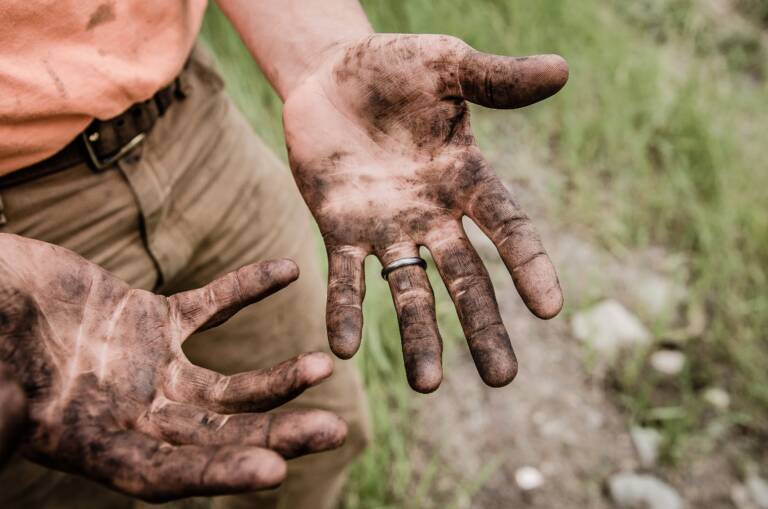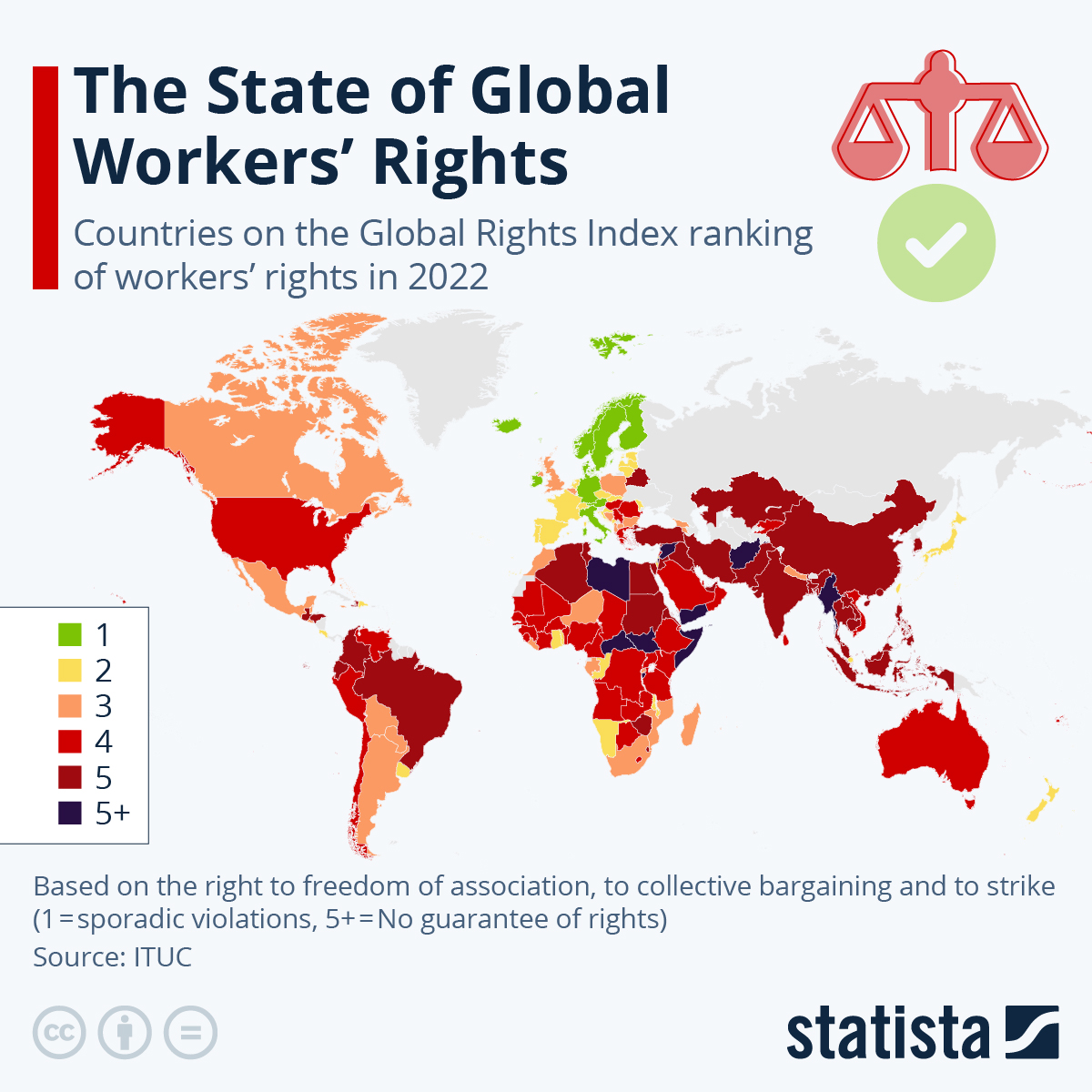Where workers’ rights are not protected, and who takes advantage of it

It has been 10 years since the collapse of the Rana Plaza factory in Bangladesh's capital Dhaka where more than 1,100 people died and more than 2,600 were injured. One of the biggest workplace disasters in history. The tragic event was a very strong push to improve the quality and safety of work also in developing countries. For example, the event led to the rapid implementation of the Accord on Fire and Building Safety in Bangladesh, which empowered trade unions and provided a framework for holding fashion brands accountable for the well-being of their employees. factories.
Launched in 2013, the deal was seen as a major step forward for workers' rights, with over 220 brands committing to join. In August 2021, brands and unions agreed on a new International Accord, which should allow the work of the accord to be extended to other countries.
While it's certainly a step in the right direction, Anna Fleck of Statista reports that activists stress there is still much work to be done. For example, many famous names have not signed up to the new treaty, including Amazon, Levi's, IKEA and Walmart, according to the Clean Clothes Campaign. It seems clear that for these brands the safety of workers is a secondary element. Obviously then these companies make advertising campaigns on their environmental and social goodness (the reference to a Swedish furniture brand is purely coincidental).
The chart below shows an overview of the state of workers' rights around the world, using data compiled by the International Trade Union Confederation (ITUC). According to the International Trade Union Confederation's analysis, Bangladesh was ranked in the lowest category when it comes to workers' rights (except for places where a general breakdown in the rule of law has been identified). The organization also said it saw the country at the bottom of this category, along with Belarus, Brazil, Colombia, Egypt, Eswatini, the Philippines, Guatemala, Myanmar and Turkey. The ITUC has compiled a ranking of 148 countries according to the right to freedom of association, the right to collective bargaining and the right to strike, assigning each nation a score from 1 to 5+, where 1 = sporadic violations of rights and 5 +=no guarantee of rights due to breakdown of the rule of law.
Countries from the EU are almost all in category 1 and 2 except…. the Poland of the industrial boom and the Belgium of the EU. As the infographic shows, only a select few countries have received the green seal of approval, all in Europe. The rest of the world shows a less promising picture: 87% of countries violated workers' right to strike in 2022, up from 63% in 2014. According to the report, trade unionists were killed in 13 countries last year, with Colombia being the deadliest nation.
Last year, the Middle East and North Africa received the worst score among regions on the Index of Global Rights, with an average of 4.53. Followed by Asia-Pacific with 4.22, Africa with 3.76, the Americas with 3.52 and Europe with 2.49. The Asia-Pacific region saw its average rating deteriorate slightly in 2021, falling from 4.17 to 4.22 the following year.
Although the graph takes into account not only garment workers but all workers in general, ITUC analysts explain that in Bangladesh, the garment industry is one of the largest sectors, with over 4.5 million employees . The country received a score of 5, meaning there is no guarantee of workers' rights. Yet how many Italian trade unionists buy garments from the fashion chains that produce in Bangla Desh? Maybe with the help of the armocromist..

Thanks to our Telegram channel you can stay updated on the publication of new articles from Economic Scenarios.
The article Where workers' rights are not protected, and who takes advantage of them comes from Scenari Economici .
This is a machine translation of a post published on Scenari Economici at the URL https://scenarieconomici.it/dove-i-diritti-dei-lavoratori-non-sono-tutelati-e-chi-ne-approfitta/ on Mon, 01 May 2023 10:00:46 +0000.

